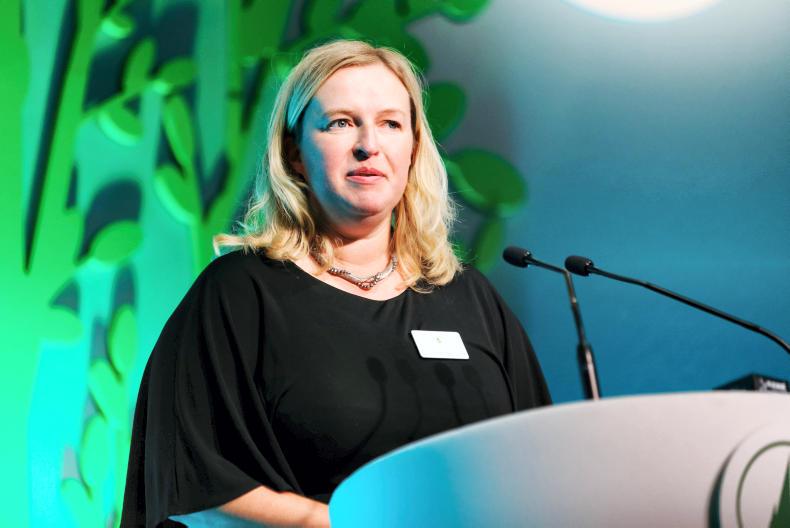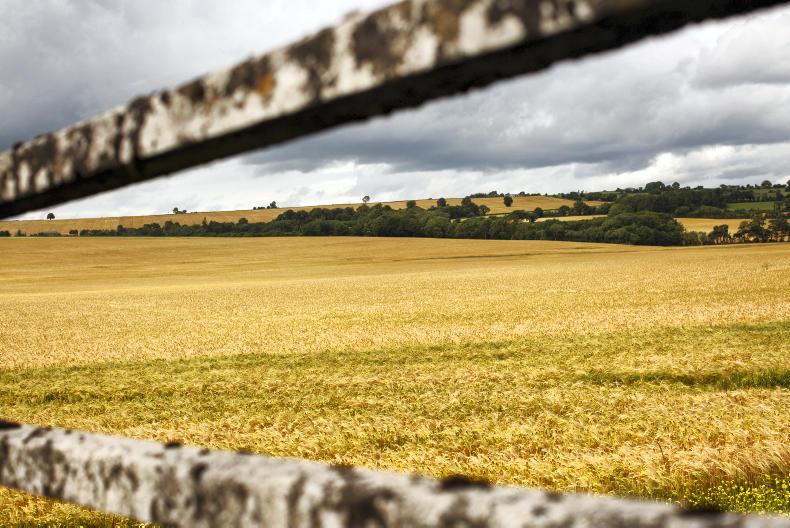The Oxford Farming Conference (OFC), in the first week of January, sets the agenda for agricultural policy in the new year. Heads of state use it for announcements, industry use it to debate future direction and farmers use it to network with all of the above.
“It is progressive, innovative farmers at the top of their game. You’ve got that chance to have a debate,” says chairperson Caroline Millar.
A year on from president Donald Trump’s inauguration as president of the United States and 18 months on from the EU exit referendum, Millar is hoping that the UK secretary for agriculture Michael Gove will use the conference to “put more meat on the bones of things.”
“In the politics session, for the first time since 2003, we have an American, Ted McKinney, who’s the Under Secretary for Trade and Foreign Agricultural Affairs to the United States Department of Agriculture. We also have Paolo DeCastro, vice-chairman to the European Parliament’s Committee on Agriculture and Rural Development. So it is not set up to have someone deliver a speech and walk off the stage. Anna Hill from BBC R4 will be encouraging them to have a real debate on international trade.”
This year the conference has an ‘emerging leaders’ programme as well as a debate on ‘The Birds & The Bees’ covering the practicalities of greening and biodiversity over the coming years.
“So absolutely we are looking at Brexit but in different angles,” says Caroline. With the Brexit clock ticking, this conference has an opportunity to feed in to negotiations and shape some of the UK agricultural policy going forward.
The OFC organisation is a charity run by volunteers. Those on the council serve a three-year stint. At the AGM each year three people come on and three go off.
This system “means everything is very vibrant and fresh. The conference is always changing because you have a new dynamic in the group.”
“I think for me the one thing I am most looking forward to is the Oxford Union debate. We are the only organisation outside the university that gets to host a debate in this historical chamber. Every American president has debated there so you’ve got this amazing atmosphere. This year it’s on ‘will we still be eating meat by 2100?’.”
Hideaway homes
Having grown up on a farm in Perthshire, with an interest in business, Caroline now runs a luxury rural hideaway business on her husband’s family farm in Dunkeld. They currently have three ‘hideaway’ houses and are building two more, costing £500,000. Caroline uses her background in marketing and her Nuffield scholarship on farm tourism for the business.
“I did a Nuffield scholarship in 2012 on how to add more value to your farming asset, specialising in tourism. It is such a big industry and in Scotland it’s worth £11bn to the economy. Agriculture is a pivotal part in providing the backdrop to this multi-billion pound industry. We see that we provide the raw materials for the food and drink industry, not tourism,” says Caroline, who worked for Forth Ports for 10 years and studied sociology and psychology at Glasgow University.
Half the couples staying at her hideaway homes are either on honeymoon or about to propose, so she has catered for all sorts of requests including hot air balloon rides in the past.
“They are properly constructed houses, like a hotel suite sitting in a barley field. They’re private, very set apart from each other. Each of them has underfloor heating, hot tub, sauna etc. You can’t just put a log cabin up and demand £350/night. Most of our couples are high-end city dwellers from Aberdeen, Edinburgh, Glasgow, London. Although we are having more international guests now.”
It was her experience in agricultural tourism and her Nuffield scholarship that saw Caroline turn her hand to the OFC. On her 40th birthday she presented her research to the conference, which she says was a “pretty special way to spend your birthday”.
Outside of the OFC, Caroline also serves on the board of Scotland’s Rural College and getting more women involved in voluntary roles.
“The industry needs a range of views, a range of ages and gender. The industry is not a bunch of men in their late 50s, so at a board level we need that representation. Some of the women I met on the emerging leaders’ course said that their husbands don’t want to see them doing anything outside their job. They call it babysitting and not being a parent. Fortunately my husband is a brilliant parent, but I do think if you want to do something you have to make sacrifices and get on with it.”
The Oxford Farming Conference takes place from 3 to 5 January 2018 in Oxford University. This year’s theme is ‘Embracing Change’.









SHARING OPTIONS